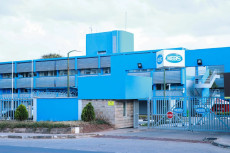- Internships, co-op programs and hands-on projects enable students to apply their academic learning to solve actual problems, providing them with valuable experience and insights.
As the job market grows increasingly competitive, university students face the challenge of not just excelling academically but also acquiring the skills and mindset necessary to thrive in the professional environments.
While degrees opens doors, workplace readiness ensures students can step confidently through them. One major part for workplace preparedness is digital literacy. The modern workplace requires employees who are not only academically proficient but also posses practical skills, experience and are well acquainted with a variety of digital tools and platforms since the world today is driven by technology.
This has made digital literacy a fundamental skill for university students since it prepares students to succeed in an increasingly digital world. Apart from technical skills, workplace preparedness programs also focus on developing essential soft skills such as communication, teamwork, problem -solving and time management. These skills are crucial for success in any professional environment and can significantly enhance a student's ability to adapt and thrive in their chosen career.
One of the primary benefits of workplace preparedness is that it helps bridge the gap between theoretical knowledge acquired in classrooms and practical application in real work scenarios. Internships, co-op programs and hands-on projects enable students to apply their academic learning to solve actual problems, providing them with valuable experience and insights.
Employers are increasingly looking for employees who are competent and efficient enough. By participating in internship programs and other work-based learning opportunities, students can build robust portfolio that showcases their capabilities. This enhances their chances of being employed easily and gives them a competitive edge in the job market.
Read More
In addition, hands-on work experiences provide students with clearer understanding of their career interests and goals. By engaging in real world projects, they can identify their strengths and weaknesses, gain confidence in their abilities and make informed decisions about their future career paths.
This clarity is especially vital in a world where job roles and industries are constantly evolving. University plays a vital role in equipping students for the transition from academia to workplace. Career counseling services, skill development workshops and mentorship programs are essential in helping students identify their strengths and weaknesses.
By bridging the gap between theory and practice, developing soft skills, providing clarity and confidence, and enhancing employability ,these initiatives play crucial role in shaping well-rounded, job-ready graduates. As universities continue to adapt to the changing demand s of job market, it is important to prioritize and promote workplace preparedness programs to ensure that students are fully equipped to succeed in their professional lives.
The journey from university to workplace can be daunting, but with the right preparation, students can transform challenges into opportunities and emerge as confident, capable professionals ready to make their legacy.












